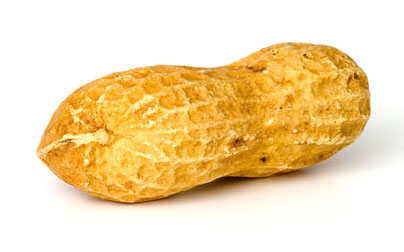Peanut Butter, Poverty, and Salmonella
Ever notice how we get told about salmonella outbreaks in peanut butter whenever the economy tanks? There’s a reason for that. And a simple solution!
Apparently, the oil and low water environment of peanut butter can make salmonella stubborn to kill in the processing factory environment. Heat sealing won’t quite kill them all. Usually only a few stubborn beasties are left though, and only on special occasions.
So why is it that these little buggers show up every time the economy gets bad?
When things are hard, people buy more peanut butter. Peanut butter sales are sort of the mercury reading of economic health. Good times, people buy meat and cheese. Hard times, they eat more peanut butter. Especially families with lots of children. No criticism there, my kids ate a lot of peanut butter, it is good food.
But when things are hard, and peanut butter sales increase, peanut butter spends less time in storage, between the factory and the table. Turns out, that creates a problem.
Salmonella can’t survive well in peanut butter. It can’t multiply there, and has a hard time even living. Somewhere between two and six weeks after bottling, any salmonella in peanut butter is gone from natural peanut butter and unsweetened peanut butter by the time it hits the store in almost every situation.
Some ingredients help the salmonella survive longer. Sugar is one of them. Some other sweeteners act the same as sugar, giving the salmonella a carbohydrate fix that helps it last a bit longer. More sugar, longer living salmonella.
Even so, within about 12 to 20 weeks, the salmonella is completely gone (even in cooler temperatures which prolong the life of the bacteria). And here we have the reasoning for salmonella outbreaks when the economy is in the toilet…
It means that our peanut butter reserves in warehouses have run short. The peanut butter is spending less time in storage between packaging and the store. It isn’t having enough time for the salmonella to completely die off.
This is a bit alarming when you think about it. If the economy is so bad that we are down to a few weeks supply of peanut butter in our nation, then things are worse than they may appear on the surface. Peanut butter doesn’t lie.
So, what does this mean to you, and how can you be sure you are eating safe food? It has nothing to do with the government – there are a few simple things you can do to make sure your peanut butter isn’t going to make you sick.
- Buy natural peanut butter. Peanut butter without sugar is best.
- Keep natural peanut butter sealed, at room temperature, for 2-3 weeks before using.
- Keep sugared peanut butter sealed, at room temperature, for 6-10 weeks if you can, before using. This means having a supply on hand to use from.
- If you make fresh peanut butter, do not add sugar, and store it at room temperature for three weeks before using – the salmonella comes from the fresh peanuts, not from the packaging systems. Give it time to die.
- DO NOT REFRIGERATE UNOPENED PEANUT BUTTER! Store at room temp, NOT in a root cellar or cold storage. Salmonella survives LONGER when refrigerated.
No need to recall “contaminated” peanut butter, just set aside unopened jars for use later. Truth is, probably a lot of what comes to your table was contaminated at one time – but the salmonella has had time to die in storage, and is no longer a risk.
The problem here is not that peanuts can be contaminated. We will never be able to stop them from being contaminated, and we won’t really be able to stop some of those little beasties from surviving the hot bath of processing and preserving.
The real problem is that our economy is so badly damaged that people are using far more than is being produced, resulting in a depletion of stored supplies. Under normal conditions, the commercial storage and distribution system has a built-in mechanism to ensure that the peanut butter is safe by the time it reaches your home. It is only in this kind of hard times when that falls apart because of abnormally high demand.
The long term national solution is to elect a man who actually cares about fixing the economy instead of re-electing someone bent on destroying it further. A reduction in government regulations, which allows businesses to flourish and hire again, will solve the problem of the peanut butter – no new regulation is needed (quite the opposite).
The personal solution is much simpler. Just make sure your peanut butter is old enough to be safe.







